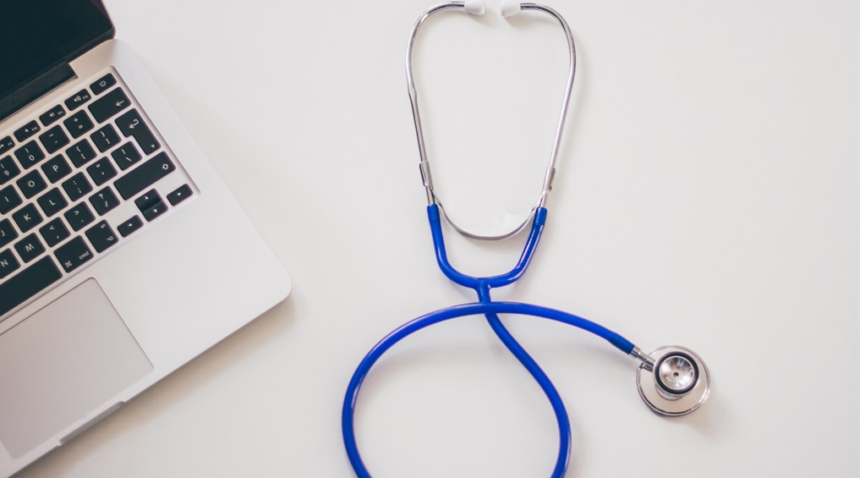In recent years, the proliferation of the internet has transformed many aspects of our lives, including how we access medical information. While this has empowered individuals with vast amounts of knowledge at their fingertips, it has also given rise to a troubling trend: the reliance on Google for medical consultations and self-prescription. This phenomenon poses significant risks to public health and the integrity of medical practice.
The Allure of Online Medical Information
The internet, particularly search engines like Google, provides instant access to a vast repository of medical knowledge. This can be especially appealing to individuals seeking quick answers to health-related questions. The convenience of typing symptoms into a search bar and receiving immediate results is undeniable. Moreover, the perceived authority of written information can often lead individuals to trust online sources as much as, if not more than, healthcare professionals.
The rapid increase in internet use in the current digital era has caused a potential increase in anxiety, and a person either self-medicates or abruptly stops the drug for his medical illness, thereby the rise in the Internet Derived information Obstructing Treatment (IDIOT) syndrome. The Internet Derived Information Obstructing Treatment (IDIOT) syndrome occurs when patients abruptly quit their treatment because they have blindly trusted internet medical information. WHO calls this an “Infodemic,” which has created a complex situation in healthcare, as it has caused too much information in digital and physical environments during an outbreak of the disease and caused mistrust in health authorities.
The Dangers of Misdiagnosis
One of the primary risks associated with Google consultation is the potential for misdiagnosis. Medical professionals undergo extensive training to accurately diagnose conditions based on a combination of symptoms, medical history, physical examinations, and diagnostic tests. In contrast, Google searches often present a list of potential conditions without the context necessary to make an accurate diagnosis. This can lead individuals to incorrect conclusions about their health. For example, a person experiencing chest pain might find information suggesting anything from a minor muscle strain to a life-threatening heart attack. Without professional guidance, they may either downplay a serious condition or panic unnecessarily over a benign issue. Misdiagnosis can result in delayed treatment, inappropriate use of medications, and increased anxiety.
The Risks of Self-Prescription
Self-prescription is another serious issue arising from online medical consultations. Armed with information from Google, individuals might feel confident in their ability to manage their health conditions without consulting a healthcare provider. This can lead to the inappropriate use of over-the-counter medications or the misuse of prescription drugs.
Medications are often accompanied by specific dosages, potential side effects, and interactions with other drugs that require professional oversight. For instance, using antibiotics without proper guidance can contribute to antibiotic resistance, a significant public health concern. Similarly, taking incorrect doses of painkillers or other medications can result in severe side effects or overdose.
The Impact on Healthcare Relationships
The reliance on Google for medical advice can also undermine the doctor-patient relationship. Trust and communication are fundamental to effective healthcare. When patients turn to the internet instead of consulting their doctors, it can lead to misunderstandings and non-compliance with professional recommendations. Doctors may find it challenging to convince patients of the necessity of certain treatments or the inaccuracy of their self-diagnoses.
Moreover, patients who frequently consult the internet may become skeptical of their doctor’s expertise if their online research does not align with professional advice. This skepticism can erode trust, making it more difficult for doctors to provide effective care.
The Spread of Misinformation
The internet is rife with misinformation, and medical information is no exception. While reputable sources such as medical journals and official health websites provide accurate information, many other sources do not. Websites may offer anecdotal evidence, unverified treatments, or even pseudoscience. Distinguishing between reliable and unreliable sources requires a level of expertise that the general public may lack.
Social media platforms, in particular, have been criticized for spreading health misinformation. Influencers and unqualified individuals often share health advice that can be misleading or harmful. This can exacerbate public health issues, as seen with vaccine misinformation contributing to vaccine hesitancy and the resurgence of preventable diseases.
Legal and Ethical Concerns
The rise of self-diagnosis and self-prescription also raises legal and ethical concerns. Medical professionals are bound by ethical codes and legal regulations to ensure they provide safe and effective care. When individuals bypass professional consultation, they forgo the protections offered by these regulations. Additionally, self-prescribing medications without a proper prescription is illegal in many jurisdictions and can lead to legal repercussions.
Mitigating the Risks
Addressing the menace of Google consultation and self-prescription requires a multifaceted approach:
- Education and Awareness: Public health campaigns should educate individuals about the risks of self-diagnosis and self-prescription. Emphasizing the importance of consulting healthcare professionals can help mitigate these risks.
- Improving Online Information: Efforts should be made to ensure that accurate and reliable medical information is easily accessible online. Search engines can play a role by prioritizing reputable sources in their results.
- Enhancing Doctor-Patient Communication: Healthcare providers should be proactive in discussing the dangers of self-diagnosis with their patients. Encouraging open communication can help patients feel more comfortable seeking professional advice.
- Regulating Online Medical Advice: Authorities can consider implementing regulations to monitor and control the dissemination of medical information online. This could include certifications for websites that provide health information.
- Promoting Digital Literacy: Educating the public on how to evaluate the credibility of online information can empower them to make informed decisions about their health.
The ease of access to medical information on the internet has undoubtedly revolutionized the way individuals approach their health. However, the trend of using Google for medical consultations and self-prescription poses significant risks. Misdiagnosis, inappropriate medication use, and the erosion of trust in healthcare professionals are just some of the dangers associated with this practice. By taking steps to educate the public, improve the reliability of online information, and strengthen doctor-patient relationships, we can mitigate these risks and ensure that the benefits of digital health information are realized without compromising public health.
(Author is Columnist, blogger Healthcare (cancer awareness & prevention) Improvement of Healthcare-standards, Safety; Moral Ethics in healthcare & hospitals. Feedback: [email protected])








